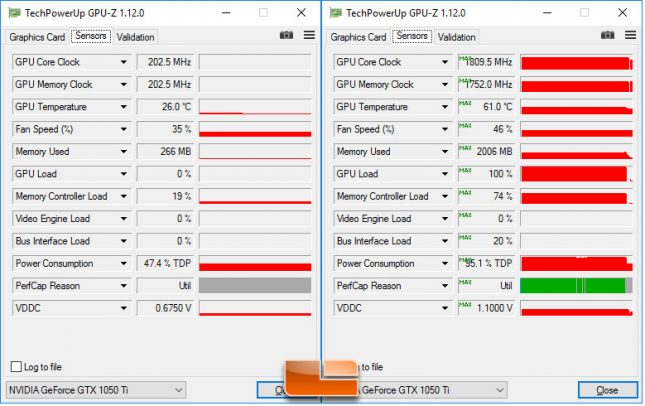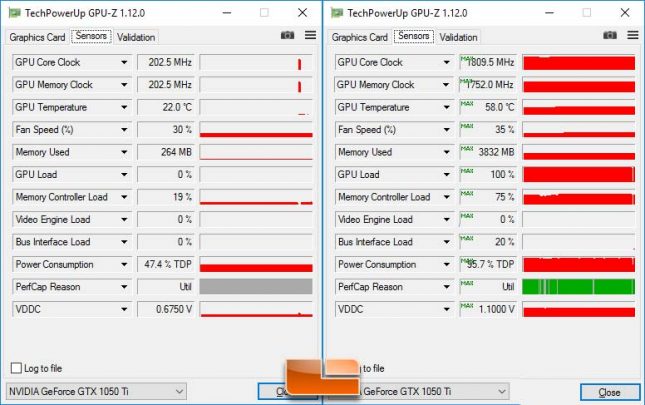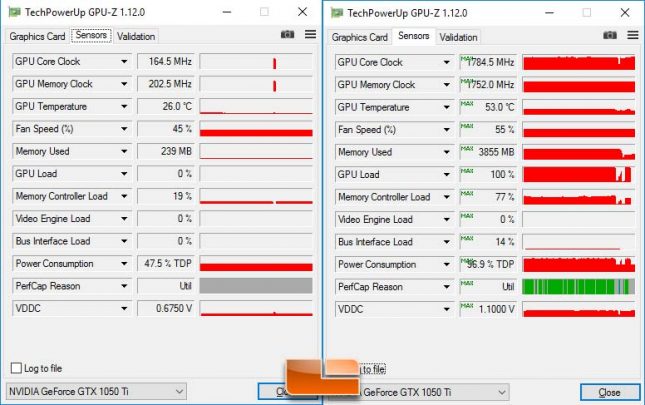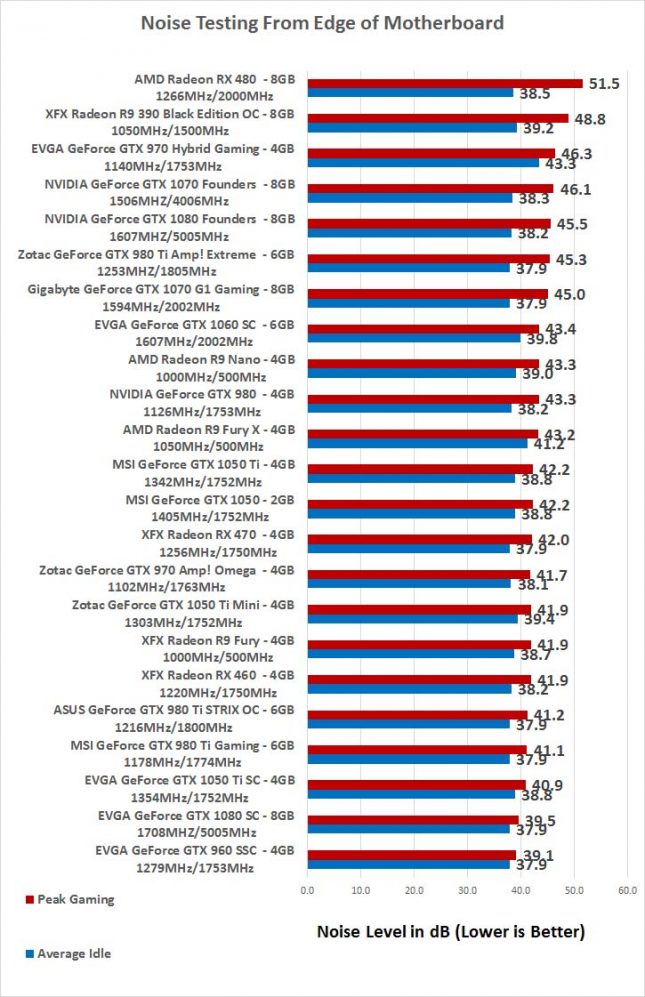GeForce GTX 1050 Ti Video Card Roundup – EVGA, MSI and ZOTAC
Temperature & Noise Testing
The gaming performance on a graphics card is the most important factor in buying a card, but you also need to be concerned about the noise, temperature and power consumption numbers.
MSI GeForce GTX 1050 Ti 4G OC Idle and Load Temps:
EVGA GeForce GTX 1050 Ti 4GB SC Gaming Idle and Load Temps:
Zotac GeForce GTX 1050 Ti 4GB Mini Idle and Load Temps:
When it comes to temperatures all three of the GeForce GTX 1050 Ti got no where near their peak operating departure of 97C! cards we great despite the tiny heat sinks! We were seeing 25C idle and 60C on the MSI GeForce GTX 1050 2GB card and just 1C higher on the MSI GeForce GTX 1050 Ti 4GB card. Notice that the MSI GeForce GTX 1050 Ti was boosting up to 1809 MHz at times, which was higher than the MSI GeForce GTX 1050 that topped out at 1759MHz. We found this a little odd as the MSI GeForce GTX 1050 has a higher base and boost clock on paper.
Sound Testing
We test noise levels with an Extech sound level meter that has 1.5dB accuracy that meets Type 2 standards. This meter ranges from 35dB to 90dB on the low measurement range, which is perfect for us as our test room usually averages around 36dB. We measure the sound level two inches above the corner of the motherboard with ‘A’ frequency weighting. The microphone wind cover is used to make sure no wind is blowing across the microphone, which would seriously throw off the data.
The single fan cooler design on the these three cards isn’t bad and most were just a few dB above their idle noise levels. Sure the EVGA GEForce GX 1050 Ti SC Gaming had a lower 40.9 dB reading, but the MSI GeForce GTX 1050 Ti 4G OC didn’t sound too much louder at 42.2 dB and besides you have to remember two things. This is on an open air test bench and the sound meter itself has a 1.5dB accuracy. Too close to call any winners on the noise front, but all are very quiet and shouldn’t be annoying by any means. The MSI GeForce GTX 1050 Ti did make a slight ticking sound when ramping up and down the fan curve profile as the cards temperature changed, but it wasn’t terrible.
** The AMD Radeon R9 Fury X reference card that we are using was the original model with a loud water pump that whines. AMD changed the pump design before the cards hit the retail market, but wasn’t willing to replace ours. We expect retail cards to perform quieter for this and hopefully AMD will send us a replacement card for proper noise testing. **




